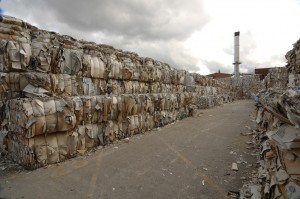
 In December 2015, the Commission in Brussels produced its long awaited Circular Economy Package – “Closing the loop – an EU action plan for the Circular Economy”. It contains a very wide ranging set of proposals with three principal objects. Firstly, to harmonise a number of existing directives into one overarching piece of legislation, secondly, to promote “waste” as the new “resource”, and thirdly, to support other environmental and Climate Change initiatives.
In December 2015, the Commission in Brussels produced its long awaited Circular Economy Package – “Closing the loop – an EU action plan for the Circular Economy”. It contains a very wide ranging set of proposals with three principal objects. Firstly, to harmonise a number of existing directives into one overarching piece of legislation, secondly, to promote “waste” as the new “resource”, and thirdly, to support other environmental and Climate Change initiatives.
The European Paper Industry has generally welcomed the new proposals, particularly the recognition that the bio-economy and the concept of “renewability” have important parts to play in developing this new strategy and that further innovation funding will be made available. The Paper Industry also welcomes increased recycling targets as it believes that, with the right infrastructure in place, it should be possible to recycle more than the 71% already being achieved. Indeed, there is renewed emphasis contained within the proposals on the separation of materials at source and on improving quality standards throughout the waste chain which, if implemented, should increase the flow of recyclable fibres back to the paper mills.
It is likely that this package of measures will be popular in some quarters and less so in others. Expect some lively debate over the coming year or so, particularly here in the UK, which has, up to now, pursued a slightly different approach to recycling than our continental neighbours.
Perhaps the most controversial proposal is the requirement to collect certain materials – including paper – separately from other materials. Defra has failed to fully implement the spirit of the current guidelines on this issue and has even been subject to legal challenge in the courts. It has taken the view that collection methods are a matter for local decision making. Will it be able to maintain this stance? Time will tell.
Waste policy is currently a devolved responsibility in the UK which has allowed the devolved administrations to pursue their own policies. Will this continue or will there need to be an overarching unified approach in the future?
For local authorities, the challenges are going to be significant, as up to now they have been targeted purely on landfill avoidance and therefore have not been too concerned about quality issues. The trend has been towards comingling of materials which, once compacted, become either very expensive to sort or even unrecyclable and only fit for generating energy from waste (EfW). Overcapacity in EfW is to be discouraged and EfW limited only to materials which are genuinely unrecyclable. How do local authorities react to this new policy direction, especially when many of them are tied into long-term contracts with waste management companies? How much longer will they have total freedom to determine collection and disposal methods? How long before they too have to accept some responsibility for meeting quality standards?
Perhaps the biggest challenge rests with the waste management companies if exacting quality standards are to be implemented both for the UK and export markets. In the case of paper, this is likely to require compliance to the EN 643 standard which only allows for contamination rates of about 2%. Currently the rate is often in excess of 20%.
The issue which is likely to cause the fiercest debate is the call for Member States to establish extended producer responsibility schemes which not only involve the producers of the materials but “public and private waste operators, local authorities and, where appropriate, recognised preparation for re-use operators”. In the Packaging arena this responsibility has, until now, been exercised through the Packaging Recovery Note system and discharged by raw material suppliers, producers, brand owners and retailers. It looks as if the net might well be widened. The other question that has yet to be answered is to what extent the consumer should pay – something that politicians have so far shied away from.
For those who place products onto the market, there will be an increased emphasis on developing lifecycle assessment tools to determine the environmental impact of their goods using enhanced eco-design methodologies and eco-labeling. Manufacturers will need to take into account recyclability or re-use at design stage. This is also where the concept of “renewability” comes into play and where paper-based products are uniquely well placed.
The Commission also intends to act on the issue of food waste. This will have an impact on the retail trade as it will no longer be able to reject perfectly edible food purely on the basis of aesthetics. The impact will also be felt by consumers. According to the Government’s Waste Resource Action Programme (WRAP), the UK disposes of 4.2m tonnes of edible food a year, at an average cost per household of £470. Action in this area is well overdue.
This Circular Economy Package is a far reaching set of proposals which will generate extensive debate over coming months. It poses a lot of questions but, for the UK in particular, it offers few answers that are going to be palatable to everyone.
The Confederation of Paper Industries (CPI) is the leading trade association representing the UK’s Paper-based Industries. CPI represents an industry with an aggregate annual turnover of £6.5 billion, 25,000 direct and more than 100,000 indirect employees.
For further information call 01793 889600, email: cpi@paper.org.uk or visit www.paper.org.uk







Recent Comments